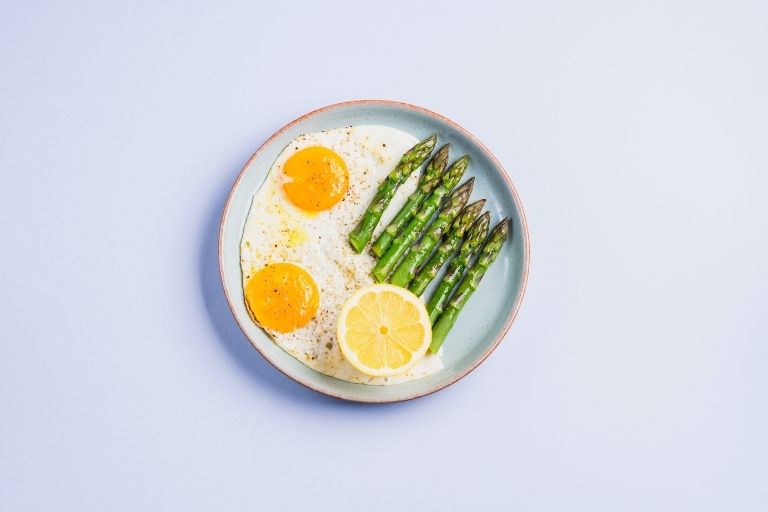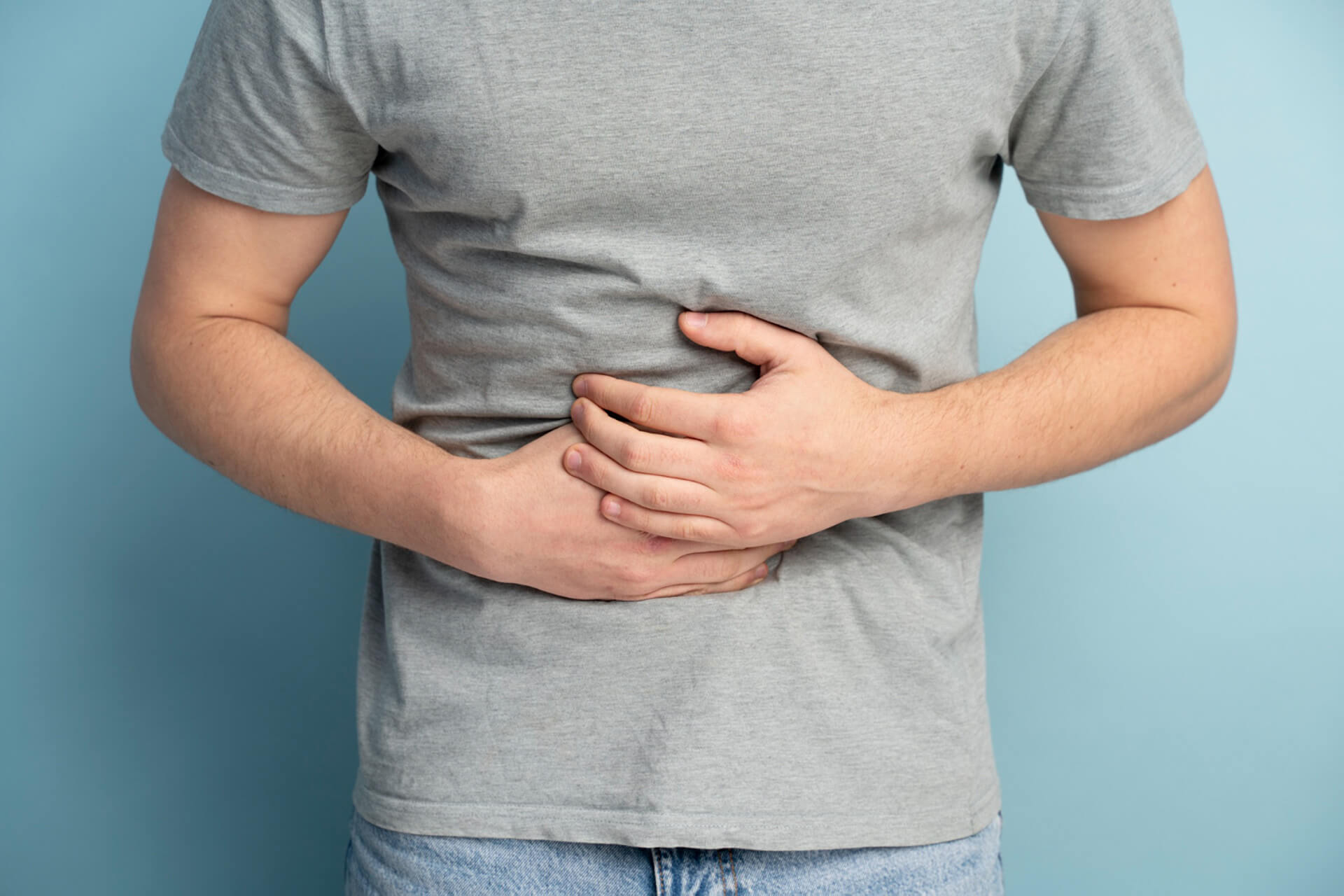Are you here because you’re curious about the keto diet? If you have some questions you need to be answered prior to trying this diet, we’ve made a list of keto FAQ. We hope that this gives you more clarity and clears up any confusion.
30 Keto FAQ and Answers
Let’s dive into the top burning questions asked about the ketogenic diet.
Keto FAQ #1: What is the ketogenic diet?
The ketogenic or “keto” diet by definition is a very low-carbohydrate, high-fat eating plan. Eating this way triggers your body to enter ketosis, a normal metabolic state where your body burns fat (instead of carbs) as its fuel.
Keto FAQ #2: How many carbs should I eat on a keto diet?
The carbohydrate allowance on keto ranges from 20 grams to 50 grams per day. Some people count total carbs while others count net carbs. However, counting total carbs is the best approach for ensuring that you stay within your limits.
Keto FAQ #3: What foods can I eat on keto?
A lot, actually! All animal foods are filling and healthy choices for keto – beef, pork, poultry, eggs, fish, seafood, and venison. When it comes to fruits and vegetables, go for low-carb options like leafy greens and non-sweet fruits. Nuts and seeds are also keto-friendly. Here’s a complete keto grocery list.
Keto FAQ #4: How long does it take to enter ketosis?
It usually takes 2-4 days for someone to get into ketosis. The primary requirement is to drastically reduce your daily carbohydrate consumption to 50 grams or less. However, in some individuals with fully stocked glycogen stores, ketosis may take more time.
Keto FAQ #5: What is the keto flu and how do I get rid of it?
The keto flu describes a collection of symptoms that appear as your body enters ketosis. As the term implies, it mimics an actual flu in which you experience headache, fatigue, and body aches. A few tips to overcome it include replenishing electrolytes, staying hydrated, and getting quality rest.
Keto FAQ #6: Is there any risk of doing keto?
Risks only occur for those that fail to follow the keto diet properly. For example, electrolyte imbalances and nutrient deficiencies happen if you don’t eat nutrient-dense foods and replenish your electrolytes.
Keto FAQ #7: What’s the difference between ketosis and ketoacidosis?
Ketosis is a normal metabolic state characterized by increased ketone levels between 0.5 mmol/L and 3.0 mmol/L. It has many health benefits. Ketoacidosis is a complication of poorly managed Type 1 Diabetes in which ketone levels are 3-5 times higher than ketosis.
Keto FAQ #8: Are there different ways to do keto?
Yes, there are! This is good news to those with specific food preferences and eating styles. You can choose from various keto meal plans. For example, a Standard keto diet with all kinds of keto foods allowed, or a sub diet such as Vegetarian, Pescatarian, Carnivore, Mediterranean, and Paleo.
Keto FAQ #9: Can I have a cheat day on keto?
It is possible to have a keto cheat day if you personally find that it helps you mentally and physically. Self-awareness is extremely important here. If you do cheat on keto, know that it will kick you out of ketosis.
Keto FAQ #10: What mistakes do people make on keto?
If you’re not seeing results on this diet, you might be doing it wrong. Common keto mistakes include not eating enough fat, excessive snacking, not getting enough vitamins and minerals, and eating fast foods often.
Keto FAQ #11: Should I count my macros and calories?
That really depends on what works best for you. If you’re aiming to maintain ketosis because you have a medical condition, follow strict goals, or are working on body recomposition, then tracking will help. Figure out your requirements using a keto calculator. But if tracking causes stress and makes you feel restricted, then don’t do it.
Keto FAQ #12: What are the best keto sweeteners?
The best keto sweeteners that have minimal impact on your blood sugar levels are the following: Stevia, erythritol, monk fruit, sucralose, xylitol, allulose, and Swerve. Avoid honey, coconut sugar, and corn syrup.
Keto FAQ #13: Can I drink alcohol on keto?
Alcoholic drinks are allowed on keto as long as they’re low in carbs. When it comes to low-carb beers, some options include Miller 64, Corona Premier, and Beck’s Premier Light. Pure forms of alcohol such as rum and whiskey contain no carbs at all. Just keep in mind to drink moderately because too much drinking has health consequences.
Keto FAQ #14: Is it possible to build muscle on keto?
Yes, you can gain muscle while doing low-carb. A lot of studies prove this. To make this happen, you need to eat enough protein for muscle preservation, growth, and repair. At the same time, increase your fat intake. And lift heavy!
Keto FAQ #15: How can I increase my fat intake?
Eat high-fat foods such as fatty fish, avocado, eggs, bacon, and fatty cuts of meat. Cook with fats like butter, ghee, tallow, lard, coconut oil, and olive oil. Taking medium-chain triglycerides (or MCT oil) as a supplement also helps.
Keto FAQ #16: What are the best low-carb vegetables to eat?
Choose vegetables that grow above the ground since they’re lower in carbs. Examples are lettuce, spinach, cucumbers, cabbage, cauliflower, broccoli, and bell peppers. Avoid starchy vegetables like corn, white potatoes, and sweet potatoes.
Keto FAQ #17: What are the best low-carb fruits to eat?
Fruits with the least amount of carbs include avocados, lemons, berries (strawberries, raspberries, and blackberries), watermelon, cantaloupe, peaches, and coconut meat.
Keto FAQ #18: Does the keto diet help increase testosterone levels?
Research shows that the keto diet can boost testosterone in a variety of ways. One is that it reduces insulin levels. Another is that dietary fats support hormone production.
Keto FAQ #19: How can I enrich my knowledge of the keto diet?
If you want to optimize this way of eating, there are many ways to deepen your keto knowledge. Read keto diet books and cookbooks. Follow low-carb experts like Dr. Ken Berry and Dr. Dominic D’Agostino. Listen to keto podcasts.
Keto FAQ #20: How do I maximize my results on keto?
First of all, know that progress is not a straight line. You might be struggling to stay in ketosis, lose body fat, or get motivated. A few helpful tricks to speed up results include recalculating your macros, eating cleaner, fasting, and changing your usual workout routine.
Keto FAQ #21: What keto snacks can I eat?
Keto snacks can be homemade or store-bought. Some options include pork rinds, fat bombs, keto bars, almonds, beef jerky, and roasted seaweed. While there are plenty of choices, the best ones are low in carbs and have no added sugars.
Keto FAQ #22: How can women benefit from keto?
Research shows that the keto diet for women promotes weight loss, reverses PCOS, improves the mood, and clears up the skin. As you can see, women can get in better shape overall with this way of eating.
Keto FAQ #23: Can I do keto and fast at the same time?
Yes, you can! In fact, combining keto and fasting leads to more fat loss which can help you break through a plateau. They can also get you into ketosis faster after having a cheat day. However, it’s important to remember that this approach is not for everyone.
Keto FAQ #24: What keto desserts can I eat?
Keto desserts include dark chocolate bars, sugar-free soft caramels, cookies, and almond butters. Make sure to check that they’re sweetened with stevia, monk fruit, allulose, or erythritol.
Keto FAQ #25: Should I take supplements on the keto diet?
Whether or not you take supplements will depend on your needs. For example, if you’re going through the keto flu and you’re also exercising, you may need keto electrolyte supplements. Or if you’re trying to boost your fat intake, MCT oil helps. If you want to boost your workout performance, exogenous ketones or a keto-friendly protein supplement may work.
Keto FAQ #26: Can the keto diet reverse Type 2 Diabetes?
Yes, many research studies show how nutritional ketosis improves patients’ blood sugar levels, insulin sensitivity, weight, blood pressure, and cholesterol. As a result, a lot of patients on low-carb no longer need their diabetes medications.
Keto FAQ #27: Can I do a low-carb diet long-term?
Of course. You can maintain a low-carbohydrate diet for as long as you like, especially if it’s truly helping you become healthier and the best version of yourself. It’s always best to follow a keto diet that consists of whole foods.
Keto FAQ #28: What is carb refeeds and are they necessary?
Carb refeeding is a strategy where you take a day off or two from your keto diet and increase carbs. Refeeds are not necessary if you’re satisfied with your current diet and the results it’s providing you. They can be necessary, however, in cases where you need some relief from the stress of dieting, extra energy for athletic performance, or to overcome a weight loss stall.
Keto FAQ #29: How can I eat out while staying in keto?
Eating out while on a keto diet is possible. One very helpful tip is to plan ahead. Before dining out, research what options you can have on the menu. Or just order meat and green veggies without the extra sweet sauces. When it comes to drinks, Starbucks has some of the best keto coffee and tea options.
Keto FAQ #30: I have an active lifestyle. Can I still eat low-carb?
Yes. In fact, the keto diet can boost your energy levels and help you go longer since you have a steady supply of energy. So, you’re less likely to experience a “crash” and crave food every now and then.
Got More Questions About Keto?
Hopefully, this keto FAQs compilation has the answers to most, if not all, of your queries. Just in case we missed anything, please contact us. We’ll do our best to reply as quickly as possible.



